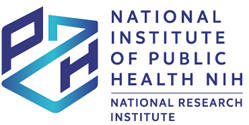Dietary habits of early school-aged children and nutritional knowledge of their parents
1
Department of Food Technology and Human Nutrition, University of Rzeszow, Poland
Data nadesłania: 31-10-2024
Data ostatniej rewizji: 14-02-2025
Data akceptacji: 20-02-2025
Data publikacji online: 20-12-2024
Data publikacji: 20-12-2024
Autor do korespondencji
Katarzyna Rolf
Department of Food Technology and Human Nutrition, University of Rzeszow, Zelwerowicza, 35-601 Rzeszow, Poland
Department of Food Technology and Human Nutrition, University of Rzeszow, Zelwerowicza, 35-601 Rzeszow, Poland
Rocz Panstw Zakl Hig 2024;75(4):349-358
SŁOWA KLUCZOWE
DZIEDZINY
STRESZCZENIE
Background: The early school period is essential in shaping dietary habits. This process is largely dependent on the nutritional knowledge of parents and caregivers. Objective: To assess the impact of parents’ nutritional knowledge on the frequency of consumption of selected groups of food products by their children at early-school aged. Material and Methods: The survey, in the form of an online survey, was conducted among parents of children from grades 1-3. The study included 179 children aged 6-11 years (mean 8.1), 54.5% of whom were girls. Questions about children’s eating habits included the frequency of consumption of specific product groups (fruits, vegetables, dairy products, whole grain cereal products, fish, meat, cold cuts, legumes, nuts and seeds, eggs, sweets). Nutritional knowledge was determined on the basis of parents’ self-assessment. Statistical analysis included a heat map and Pearson correlation. Results: A high level of nutritional knowledge of parents was associated with a high correlation in the consumption of fruits and vegetables (0.64), and in the case of vegetable consumption with a high correlation with the consumption of whole grains and legumes. Negative correlations were found between meat consumption and consumption of vegetables,
whole grains and legumes. In the nutrition model of children of people declaring a lack of nutritional knowledge, a strong positive correlation was also found between the consumption of fruit and vegetables (0.72), vegetables and meat (0.75), as
well as nuts and milk (0.75). The consumption of sweets was strongly correlated with the consumption of fish, legumes and cold cuts, and negatively correlated with the consumption of whole grains, meat and nuts. The heat map shows a clearly higher consumption of sweets and cold cuts among children of people declaring a lack of nutritional knowledge. Conclusions: Research confirms that parents’ high nutritional knowledge is associated healthier food choices for their children.
Udostępnij
ARTYKUŁ POWIĄZANY
Przetwarzamy dane osobowe zbierane podczas odwiedzania serwisu. Realizacja funkcji pozyskiwania informacji o użytkownikach i ich zachowaniu odbywa się poprzez dobrowolnie wprowadzone w formularzach informacje oraz zapisywanie w urządzeniach końcowych plików cookies (tzw. ciasteczka). Dane, w tym pliki cookies, wykorzystywane są w celu realizacji usług, zapewnienia wygodnego korzystania ze strony oraz w celu monitorowania ruchu zgodnie z Polityką prywatności. Dane są także zbierane i przetwarzane przez narzędzie Google Analytics (więcej).
Możesz zmienić ustawienia cookies w swojej przeglądarce. Ograniczenie stosowania plików cookies w konfiguracji przeglądarki może wpłynąć na niektóre funkcjonalności dostępne na stronie.
Możesz zmienić ustawienia cookies w swojej przeglądarce. Ograniczenie stosowania plików cookies w konfiguracji przeglądarki może wpłynąć na niektóre funkcjonalności dostępne na stronie.



